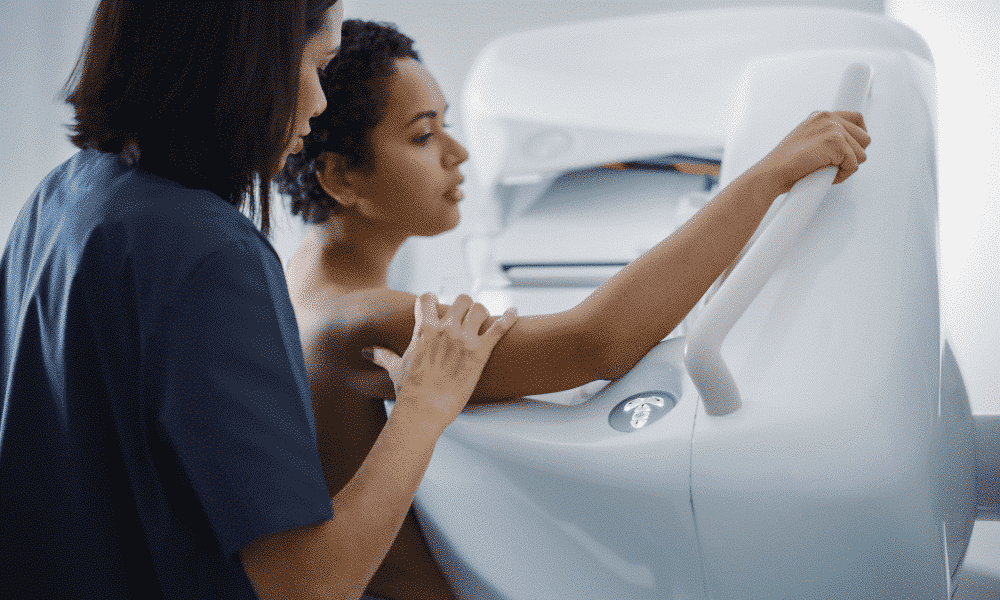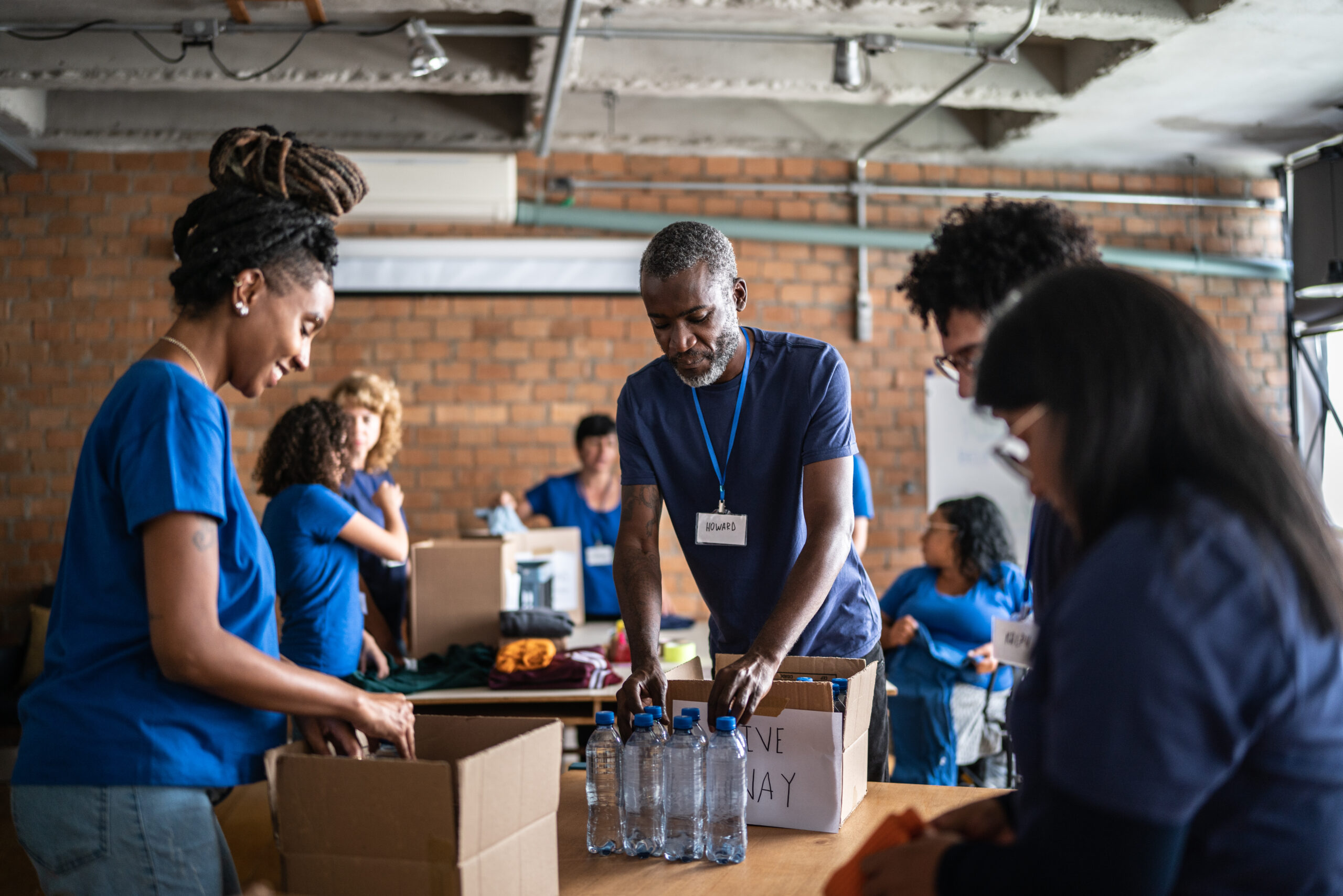|
Getting your Trinity Audio player ready...
|
You’re on your way home after your breast cancer check-up appointment, and it’s only now that all those questions you’d been storing up come flooding back to you. During your appointment, however, your mind went blank. Sound familiar?
Appointments with your healthcare providers are key touchpoints in your journey to recovery, and getting all the information you need when you meet with your doctor is important. But, we understand that feeling overwhelmed and navigating medical jargon can sometimes make that difficult.
We’ve put together a guide to support you during your journey, including how best to prepare for your appointments and what questions to ask.
Emotional well-being in between appointments
There’s no right or wrong way to feel after a breast cancer diagnosis. People who have just received a diagnosis can go through many different emotions in one day – from shock and anger to disbelief and numbness.
The days and weeks immediately after a diagnosis while you wait for your first appointment can be particularly difficult. Many people start to feel calmer once a treatment plan has been identified. However, it’s still very common to struggle with the following types of emotions in between appointments.
Acknowledging these feelings and knowing that you’re not alone in them will help you to navigate your treatment journey.
Stress
A cancer diagnosis can feel overwhelming, making it hard to think straight or carry out everyday tasks. Some people also experience physical symptoms such as loss of appetite, diarrhea, or difficulty sleeping, all of which often lead to raised levels of stress and anxiety.
Sadness
It’s normal to have times when you feel very low. Breast cancer treatment and recovery is rarely a linear journey. And sometimes, a cancer diagnosis can trigger more serious mental health issues such as depression.
Loneliness
Feeling lonely or isolated is very common, and you may feel lonely even when family and friends surround you. If they haven’t experienced cancer themselves, you might feel like they don’t understand what you’re going through.
How to make the most of your appointments
We understand that appointments with your cancer care team can sometimes feel pressured. This is your opportunity to speak in person with the healthcare professionals, get some answers to your ongoing questions, and receive those all-important updates.
Firstly, know that you can always let your doctor know if you’re having a hard time following along during the visit. Doctors tend to forget that their medical jargon isn’t always clear, and will be more than happy to rephrase their explanations. Remember, you and your well-being are the priority throughout this journey.
Here are some other ways to look after yourself and get the most out of your appointments:
Preparation
Before an appointment, plan your journey, leave yourself plenty of time and, most importantly, write down all the questions you’d like to ask. We recommend putting your main concerns at the top of your list to make sure they get covered in good time. It’s always worth bringing a pen and a notebook to jot down answers and further questions that come up too.
Advocacy
Our number one tip is to bring someone along to assist you. Someone you trust who can help worry about the best route to get there, as well as help take notes so you don’t have to remember every little detail on your own. If they can’t join you in person, you can always ask them to call in with a video or audio call.
Ask questions
There’s no such thing as a stupid question! Doctor’s appointments and meetings with your health care team can be tricky. You often get a lot of new information and hear terms that might be difficult to understand. Practical questions for your first meeting might include:
- What treatment is recommended for my diagnosis? What are the benefits and risks?
- How and when will I receive my treatment? How long will treatment last?
- What are the main side effects?
- How can I tell if the treatment is working?
- Is there anything I can do to aid my recovery?
- What clinical trials are available for me?
If you’re looking for further advice on questions to ask your doctor, the American Cancer Society has compiled a comprehensive list to guide you from diagnosis through treatment and recovery.
Tackling difficult topics
There’s no need to be embarrassed about any part of your breast cancer journey. Breast cancer and its treatment – from screening tests, genetic testing, and breast reconstruction surgeries to radiation therapy – can impact many areas of your body and personal life.
Understanding the side effects of your treatment and feeling confident enough to talk to your doctor and support network about them will ensure you get the help, care, and information you need when you need it.
The worst is hair loss. You cry for your hair because it has such a strong link to your identity. For people struggling with this, we’re happy to put them in touch with a wigmaker in advance of their therapy. The psychological burden of breast cancer is another strong side effect. Our psycho-oncologist offers help in the form of talks during therapy.
It’s also important that people with cancer communicate with their loved ones. Be open with them, tell them that side effects are normal, and don’t be afraid to ask for help when you need it.
How can you live well when living with breast cancer?
It’s still possible to find joy in the everyday, even when you’re living with breast cancer. You can read more about that right here.
By engaging in positive tasks and building healthy habits that focus on physical activity, tailored diet, sleep, stress management, and medication adherence, you can make a big difference to your overall quality of life.
When you’re living with a condition like breast cancer, making small changes to your daily routine can have a big impact on your overall quality of life.
Advocating for yourself, committing to self-care, and getting the right support are invaluable when living with a chronic disease.
Explore our other articles on breast cancer and find valuable, supportive information on mental health as well as tools for breast cancer caregivers.












